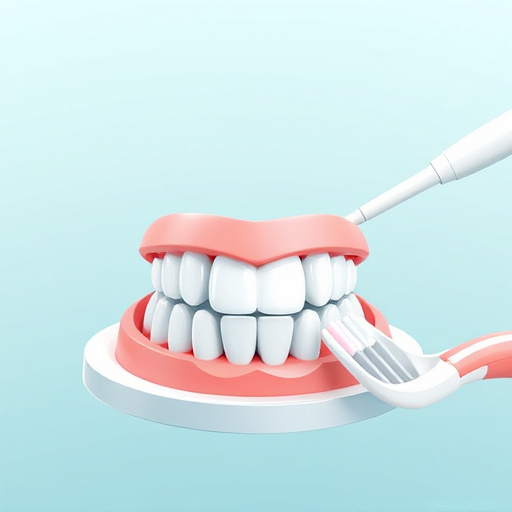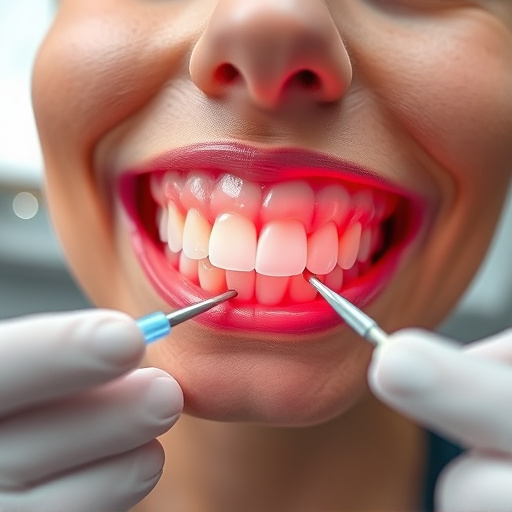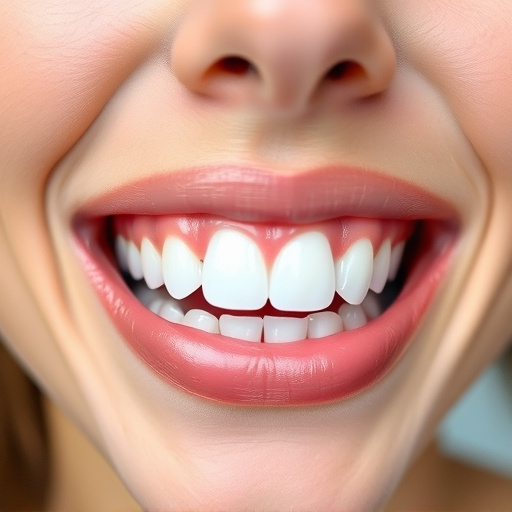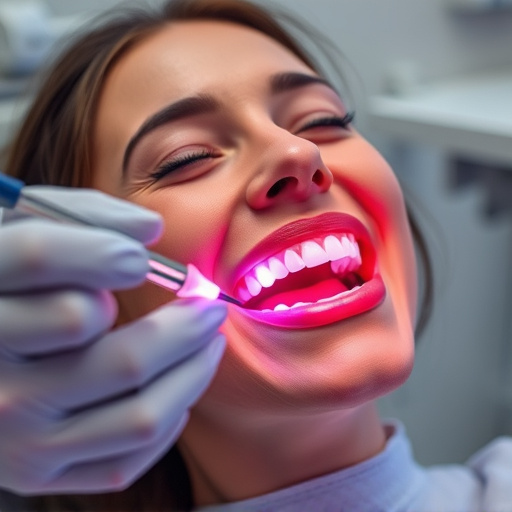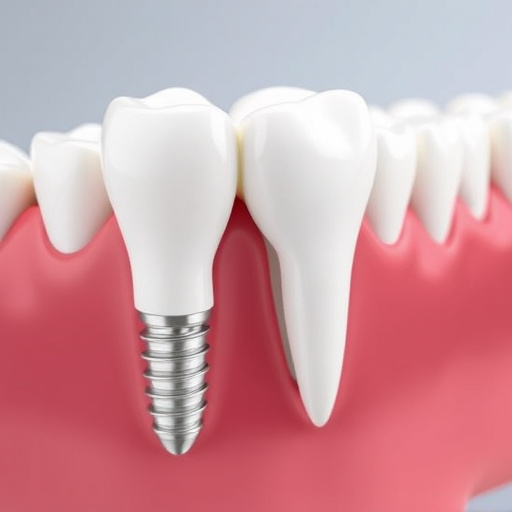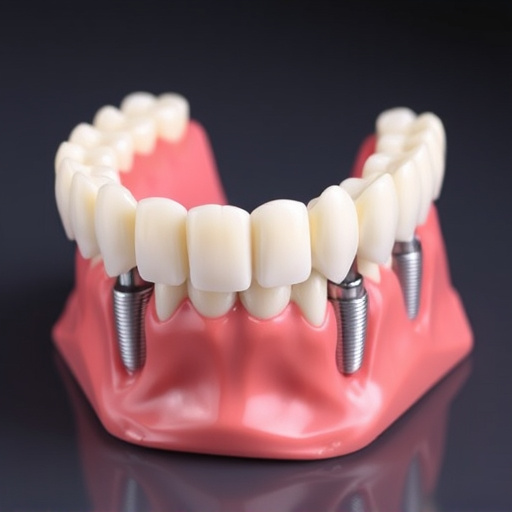Autism Spectrum Disorders (ASD) pose significant challenges in dental care, requiring the expertise of special needs dentistry. Individuals with ASD often experience anxiety, sensory sensitivities, and communication barriers during dental visits. Special needs dentists address these issues by creating calm environments, using adaptive techniques, and offering personalized treatment plans. These strategies include sensory modifications, visual aids, education, and advanced dental solutions, ensuring proper oral hygiene, preventing complications, and fostering positive relationships for individuals with ASD. By focusing on trust, familiarity, and tailored care, special needs dentistry improves overall well-being and quality of life for this unique population.
Special needs dentistry plays a pivotal role in addressing the unique oral health challenges faced by individuals on the autism spectrum. This article explores how specialized dental care tailored for Autism Spectrum Disorders (ASD) can significantly improve overall well-being. We delve into understanding ASD’s impact on dental health, highlight the essential role of special needs dentists, and provide strategies to offer comprehensive, comfortable, and effective dental care tailored to meet the specific needs of autistic patients.
- Understanding Autism Spectrum Disorders and Their Dental Implications
- The Role of Special Needs Dentistry in Supporting Individuals with ASD
- Strategies and Techniques for Providing Comprehensive Dental Care to Autistic Patients
Understanding Autism Spectrum Disorders and Their Dental Implications
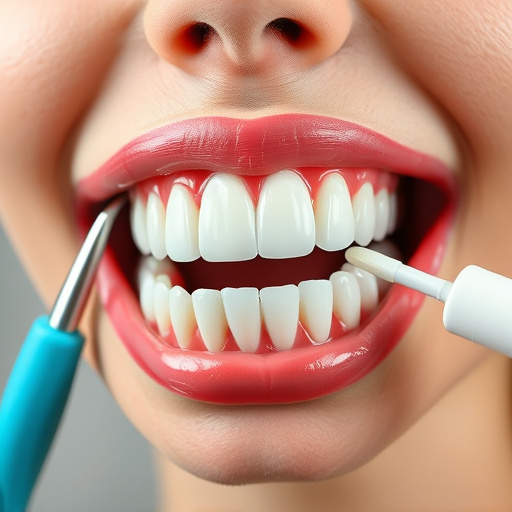
Autism Spectrum Disorders (ASD) is a complex neurodevelopmental condition that affects social interaction, communication, and behavior. Understanding ASD involves recognizing its broad spectrum of symptoms and challenges, as individuals with ASD can vary widely in their abilities and needs. In terms of dental health, ASD presents unique considerations for what is often referred to as special needs dentistry.
Children and adults with ASD may experience difficulties during dental visits due to sensory sensitivities, anxiety, or limited communication skills. These factors can make routine oral exams and common dental procedures more challenging. For instance, the noise, lights, and textures in a dental office can be overwhelming for someone on the spectrum. As a result, special needs dentistry tailored to ASD individuals often involves strategies to create a calmer, more comfortable environment, such as using cosmetic fillings or cosmetic dentistry techniques that minimize sensory disruption.
The Role of Special Needs Dentistry in Supporting Individuals with ASD

Special needs dentistry plays a pivotal role in supporting individuals with Autism Spectrum Disorders (ASD). Beyond addressing basic dental health concerns, such as routine oral exams and tooth repair, this specialized field goes deeper to cater to the unique challenges faced by folks on the spectrum. Many individuals with ASD experience anxiety or sensory sensitivities that can make traditional dental visits distressing. Special needs dentists are trained to create calming environments, use sensory-friendly techniques, and adapt their approaches to ensure these patients feel comfortable and safe during treatments.
By integrating tailored strategies, family dentistry practices specializing in special needs dentistry help individuals with ASD manage their oral health effectively. This includes not only preventing dental issues but also fostering a positive relationship with oral care. Ultimately, these efforts contribute significantly to the overall well-being of individuals with ASD, promoting better physical and mental health alongside enhanced quality of life.
Strategies and Techniques for Providing Comprehensive Dental Care to Autistic Patients
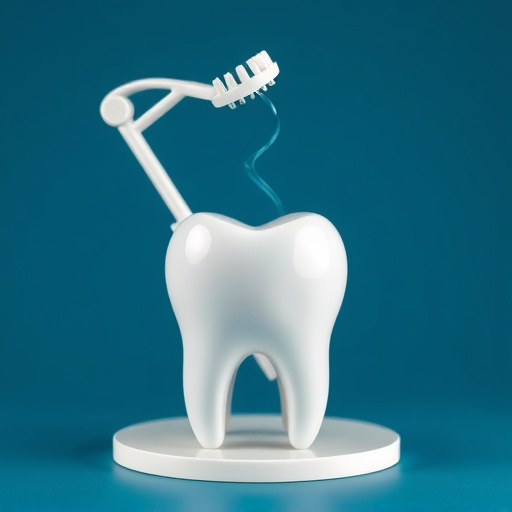
Providing dental care to individuals on the Autism Spectrum can present unique challenges, but with tailored strategies, special needs dentistry can be effectively delivered. One key approach is establishing a cooperative relationship built on trust and familiarity. This often involves introducing dental staff to the patient’s caregivers or guardians before the appointment, allowing for a shared understanding of the individual’s needs, preferences, and communication methods. Sensory considerations are paramount; creating a calming environment with dim lighting, noise-reducing headphones, and soothing music can significantly enhance patient comfort.
Personalized treatment plans are essential, focusing on preventative care like regular dental cleanings and check-ups, alongside educating patients about proper oral hygiene routines at home. For some, visual aids and step-by-step instructions can be immensely helpful in understanding procedures. Additionally, utilizing clear aligners or customized dental fillings can address specific needs while minimizing anxiety associated with traditional dental tools.
Special needs dentistry plays a pivotal role in ensuring optimal oral health for individuals on the autism spectrum. By understanding the unique challenges and dental implications of ASD, dentists can employ strategies that foster a positive and inclusive dental experience. Through specialized techniques and tailored care, special needs dentistry empowers those with ASD to overcome anxiety, improve oral hygiene, and manage dental procedures effectively. This comprehensive approach not only addresses dental health concerns but also contributes to the overall well-being and quality of life for individuals with autism.








